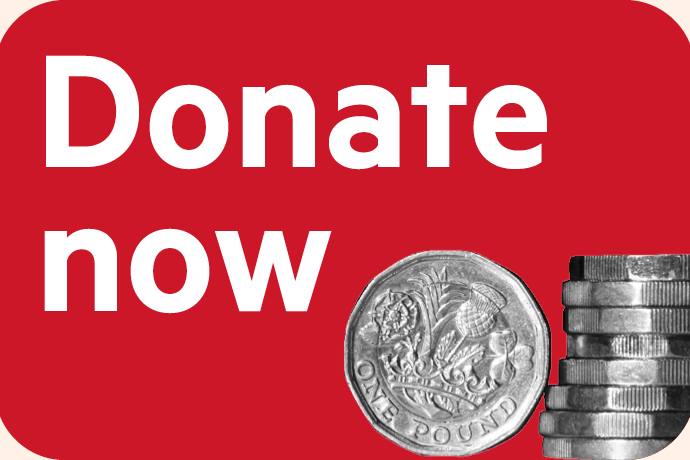
Support surges for campaigners urging non-payment of energy bills
 Energy consultancy Cornwall Insight has predicted the energy price cap could exceed £3,600 from January © Getty Images
Energy consultancy Cornwall Insight has predicted the energy price cap could exceed £3,600 from January © Getty Images This article is the latest part of the FT’s Financial Literacy and Inclusion Campaign
Support for a UK campaign group which is urging consumers to cancel direct debit payments for their energy bills is “doubling every week” amid growing public anger over soaring domestic fuel prices.
Don’t Pay UK, which was founded six weeks ago, said 70,000 people had pledged to halt their direct debits from October 1, when a big rise in energy bill payments is set to take place.
With local groups promoting its campaign in cities including London, Brighton, Bristol, Birmingham, Manchester and Sheffield, it said it had received requests from grassroots organisers for 1.6mn flyers, while its Twitter followers have more than tripled from 22,000 to 79,000 in the past week.
FT FLIC
Donate to the Financial Literacy & Inclusion Campaign here
However, consumer and charity groups have warned consumers that ending direct debits could force them on to more expensive prepayment meters or damage their credit record.
“Cancelling your direct debit will . . . take you out of any existing payment plan [such as a fixed-rate tariff or debt repayment plan] and you will lose your discount, adding 7 to 8 per cent to energy bills,” said Gemma Hatvani, founder of the Facebook group Energy Support and Advice UK.
Hatvani’s group is campaigning for the government to issue more targeted help for lower-income households, but she fears a non-payment protest would threaten people’s finances.
“If you can’t afford to pay your bills, it is better to communicate with your energy provider. If you have no debt, although companies don’t advertise it, asking to switch to a variable direct debit means you will only pay for the energy you use each month, and you can try to cut bills by reducing your consumption.”
Energy regulator Ofgem will announce the next update to the price cap at the end of August. In May, after Ofgem said early indications were that the energy price cap would rise to £2,800 from £1,971, the government announced a £15bn package of support.
But as gas prices have soared in recent weeks, energy consultancy Cornwall Insight predicted the cap could surpass £3,300 — and exceed £3,600 from January, when the next review is due.
National Energy Action, a charity, says 8mn households in England, Wales and Northern Ireland are at risk of falling into fuel poverty.
Bumper profits at energy groups have fuelled public anger over domestic bills. BP this week reported its highest quarterly profit in 14 years and announced a 10 per cent boost to its dividend. Shell last week reported it had broken profit records for the second consecutive quarter.
Recommended Serious MoneyClaer BarrettCancelling Netflix won’t solve energy price crunch
Becky from West Dunbartonshire, a Don’t Pay supporter, told the FT: “My energy bill is £217 [and is] due to go up again in October, which means I’ll be paying more for my energy than my mortgage.”
The campaign group has compared its calls for mass non-payment of energy bills with the refusal by millions to pay the poll tax in the 1980s, which contributed to its abolition. Yet experts said there were differences that held important repercussions for consumers.
“Cancelling your direct debit means suppliers will . . . start the debt recovery process,” said Matthew Cole, founder of the Fuel Bank Foundation, a charity which issues vouchers to people struggling to pay on prepayment meters. “If you’re on a smart meter, it could be remotely switched to prepayment,” he said, although suppliers would need a magistrate’s warrant to do so.
UK households will receive the £400 government grant for energy bills over six monthly instalments from October, with households on benefits receiving additional help. Campaigners say this will not be enough for those struggling to pay.
Don’t Pay said: “The government can step in at any time between now and October 1 to avoid the catastrophe awaiting millions this winter.”
{"focus":["5216ff2e-a6ed-42b2-a613-109fc6491ba2","540311b2-fcfa-48c9-bbc4-20f33db5f0ef","67ad3178-01ca-47bd-bac2-c097941f00df","9f991f8b-1d17-4d99-82f4-0cd8fe50b59b","ec221245-0bbf-454e-b1ac-178e4f5efedb","f80bd83d-3212-464e-987a-5f6e998f9be9","a579350c-61ce-4c00-97ca-ddaa2e0cacf6","29e67a92-a3b8-410c-9139-15abe9b47e12","3c608fef-7e4f-4e44-ade5-caa90d353308","51379838-c026-4cd2-8dfb-da63f7d0b123","67fb70ae-b970-4bd1-92ea-761618ae8cb7","6b683eff-56c3-43d9-acfc-7511d974fc01","6bade25b-56b3-4409-8d32-c131666d9acb","6cc4c4ed-ef61-4c71-a5bb-f454fb5010a8","82645c31-4426-4ef5-99c9-9df6e0940c00","c47f4dfc-6879-4e95-accf-ca8cbe6a1f69","c91b1fad-1097-468b-be82-9a8ff717d54c","ec4ffdac-4f55-4b7a-b529-7d1e3e9f150c"],"authorConcepts":["c1e15412-8c3a-45f8-a285-8aca505bfc72"],"displayConcept":"67ad3178-01ca-47bd-bac2-c097941f00df"}Get alerts on Personal Finance when a new story is published
Get alertsCopyright The Financial Times Limited 2022. All rights reserved.Reuse this content (opens in new window) CommentsJump to comments sectionPromoted ContentExplore the seriesREAD MOREClaer BarrettAre you due a share of £50bn of lost assets?
- Currently reading:Support surges for campaigners urging non-payment of energy bills
- Fighting financial exclusion in the Gypsy and Traveller community
- Are you due a share of £50bn of lost assets?
- Victims of financial crime suffer psychological shocks
- Employers urged to help workers navigate stresses of cost of living crisis
- Money Clinic podcast: How can I improve my credit score?
- Father’s Day advice for new investors
- Energy sector Add to myFT
- UK energy Add to myFT
- Personal Finance Add to myFT
- Oil & Gas industry Add to myFT
- Cost of living crisis Add to myFT
Owl Media Group takes pride in providing social-first platforms which equally benefit and facilitate engagement between businesses and consumers and creating much-needed balance to make conducting business, easier, safer, faster and better. The vision behind every platform in the Owl Media suite is to make lives better and foster a healthy environment in which parties can conduct business efficiently. Facilitating free and fair business relationships is crucial for any thriving economy and Owl Media bridges the gap and open doors for transparent and successful transacting. No advertising funds influence the functionality of our media platforms because we value authenticity and never compromise on quality no matter how lucrative the offers from advertisers may seem.
Originally posted on: https://www.ft.com/content/fa013935-8199-4ebd-9683-e657ad91e309